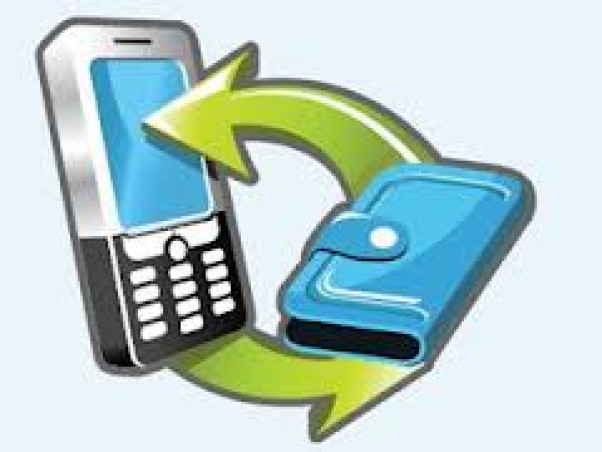Ooredoo announces support for Global Mobile Money Initiative

MAY 06,2014.
PRESS RELEASE.
Ooredoo today announced that it has committed to the GSMA’s Mobile Money Interoperability (MMI) programme to accelerate the implementation of interoperable mobile money services across Africa and the Middle East.
Ooredoo joins a group of operators in supporting the programme, who together represent 582 million mobile connections across 48 countries in Africa and the Middle East. These include Bharti Airtel, Etisalat Group, Millicom, MTN Group, Orange, STC Group, Vodafone Group and Zain Group.
The GSMA’s MMI programme also includes mobile network operators from other regions and focuses on helping them to successfully launch and scale interoperable mobile money services through identifying and sharing best practices, creating performance benchmarks, and providing regulatory support.
Dr. Nasser Marafih, Group CEO, Ooredoo, said: “Ooredoo’s companies have taken the lead in providing mobile money services in the Middle East, North Africa and Southeast Asia, and we recognise the important social, economic and community benefits that these services provide. We are pleased and proud to support this initiative, which is fully aligned with our commitment to develop life-enrichingservices that support human growth.”
“We have seen the significant benefits of mobile financial inclusion in the developing world and operators recognise that, through collaboration, there are opportunities to extend this inclusion even further,” said Anne Bouverot, Director General, GSMA. “Mobile network operators are engaging with each other, with banks, financial institutions, regulators, governments and ecosystem partners, to identify and implement solutions that will successfully allow more mobile financial services to be delivered to a broader range of people across both regions, while maintaining high service quality.”
Ooredoo passed the million customer milestone for mobile money services back in 2013, and has seen consistent growth across its footprint since then. By providing a low-cost alternative for customers who do not have bank accounts or easy access to financial services, the company is enhancing economic inclusion for the under-banked.
In Tunisia, Ooredoo and Tunisian Mail (La Poste Tunisienne) currently have more than 250,000 customers for their mobiflouss service, which works with a wide range of banks to enable customers to transfer money, check bills, and pay for bills and goods. Students have also been using mobiflouss to directly receive government scholarships in their mobile wallets, which is the region’s first deployment of a government-to-person mobile service.
Dr. Nasser Marafih, added: “We are expanding the horizons of mobile money servicesin Tunisia because we see the incredible benefits that mobiflouss can bring, particularly for young people and for aspiring entrepreneurs. Tunisia has been our fastest-growing market for Mobile Money services, as the Tunisian people embrace new technology to help transform their lives.”
In Qatar, Ooredoo, QNB and MoneyGram have seen on-going growth for the Ooredoo Mobile Money service, which enables customers to send money for collection at 321,000 MoneyGram agents in 195 countries around the world. Ooredoo recently enabled customers in Qatar to send money directly from their mobile phones to bank accounts in the Philippines, one of the most popular destinations for the service. Ooredoo Mobile Money is now the preferred money transfer service for the expatriate worker population in Qatar.
Beyond the Middle East and North Africa, Ooredoo has helped drive the growth of Mobile Money interoperability in Asia.
With the support of Ooredoo, Indonesia has become the first country in the region to enable people to transfer and receive money seamlessly with customers of any of the top three operators – Indosat, XI and Telkomcel. Indosat, a member of Ooredoo Group, is also in the process of expanding the programme with QNB Kesawan to offer debit cards linked to its Dompetku service, so customers without bank accounts can withdraw money from ATMs.
The company is aiming to use its experience to launch mobile money services in its newest market of Myanmar, hoping to provide low-cost, secure and convenient services to a population that has had limited access to financial services – or even mobile services – to date.
Mobile Money Market Landscape
It is estimated that 2.5 billion people in lower to middle income countries lack access to financial services and cannot adequately invest in their livelihoods, protect their assets nor mitigate shocks that cause them to fall deeper into poverty.
However, it is estimated that 1.7 billion of these people have a mobile phone, providing existing infrastructure that can be used to sustainably offer financial services such as payments, transfers, insurance, savings, credit and cross-border remittances. GSMA research has shown that the number of active mobile money users continues to grow rapidly, with more than 61 million accounts active as of 2013.
In some of the Middle East and North Africa (MENA) countries, although there are a number of regulatory challenges that have slowed down the growth of mobile money, it is now gaining popularity in the region. At the end of 2013, deployments in MENA represented six per cent of the live mobile money services globally and 13 per cent of total planned services, indicating that the region will become increasingly important for the industry globally.
As of December 2013, mobile money in the Sub-Saharan Africa and Middle East and North Africa regions showed significant growth:
The regions accounted for 58 per cent of the world’s 218 mobile money deployments;
Sixty-six per cent of all registered accounts and 73 per cent of active accounts are located in Sub-Saharan Africa and the Middle East and North Africa; and
Mobile money users in these regions accounted for 77 per cent of global transaction value in June 2013, performing 341 million transactions totalling USD $5.7 billion.
 Africas leading resource for digital financial services
Africas leading resource for digital financial services


comments